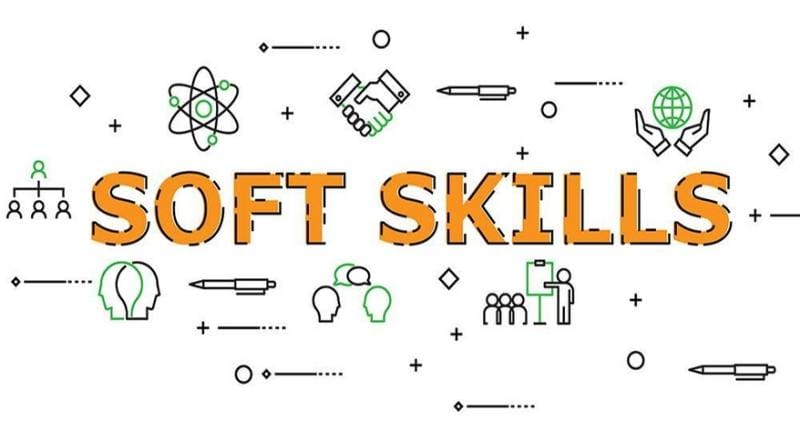5 Supporting Skills That Can Help You Get a Data Science Job
If you want to stand out among your fellow applicants, here are some supporting skills you should develop.

When you start pursuing a job in data science, some skills to acquire will be obvious. You know you’ll need experience in coding, analytics and mathematics, but you should also cultivate some soft skills. While these may not come to mind immediately when you think of data science, they’ll play a critical role in your career.
Data science jobs are still in high demand, but new openings are declining, albeit slower than other occupations. The field’s profitability will also draw more applicants, so competition is rising. If you want to stand out among your fellow applicants, here are some supporting skills you should develop.
1. Critical Thinking
Many jobs will look for applicants with strong critical thinking skills, especially in data science. You should be able to see a problem from multiple perspectives, understand how to approach it and analyze your results. This process is the foundation for many data science applications, even if it isn’t unique to the industry.
As a data scientist, you need to know how to frame a question correctly, not just answer it. You have to analyze an issue from multiple angles to find the root of the problem. After resolving something, you should reflect on the process and understand why it proceeded the way it did.
To develop critical thinking skills, take on various problem-solving projects in your spare time. Try approaching them from multiple perspectives and demonstrating a diversity of methods in resolving them. Cultivating a portfolio of these projects can show potential employers your knack for critical thinking.
2. Communication
You may not think of data science as a communication-heavy field, but that’s far from the truth. While analysis may be the core of your work, you have to communicate your results. Data science involves a lot of collaboration and reporting, so you should know how to do so effectively.
Studies suggest that inadequate communication costs large companies $62.4 million a year on average. If you can’t explain your problems or ideas to co-workers and management, they won’t see the full extent of your technical abilities. Miscommunication can lead to unoptimized processes, shortcomings and losses.
Thankfully, developing and showcasing communication skills is relatively straightforward. As you go throughout your work and personal life, seek team projects. The more you work in a group, the better you’ll become at communicating, and you’ll have evidence of it.
3. Intellectual Curiosity
A good data scientist will look for solutions to problems, but a great one will seek things to fix. Data science is a potentially disruptive field, so you should be able to think outside of traditional frameworks. Intellectual curiosity drives data scientists to find under-the-radar issues and solve them creatively.
Employers want a data scientist with a drive to learn more. This frame of mind helps find solutions and can lead to company expansion. Curiosity drives growth, so any business will be happy to find an intellectually curious candidate.
To cultivate intellectual curiosity, start asking questions. Pursue independent projects and ask why and how at every step of the process. Over time, you’ll develop a portfolio full of unique problem-solving approaches and a history of curiosity.
4. Adaptability
While it’s easy to think of the sciences as rigid, you’ll have to be adaptable as a data scientist. Adaptability is desirable in virtually any skilled trade, as employees often gain new skills on the job, meeting diverse needs. The more you can shift to meet new challenges, the more useful an employee you’ll be.
Data science influences many aspects of business today, so you’ll have to apply yourself to various situations. As a tech-centric field, data science is also always evolving. New technologies and methods emerge regularly, and you’ll have to be able to adapt to them.
You can develop adaptability by intentionally putting yourself in unfamiliar situations. Start some projects in an area you’re less comfortable or knowledgeable in. Volunteer to be part of new projects or processes in your current job or at school. You’ll learn how to evolve in the process.
5. Time Management
You should have reliable time management skills as a data scientist. It can be a demanding field, and it’s easy to feel overwhelmed in today’s fast-paced work environment. If you can effectively manage your time, you’ll be more productive and avoid burnout.
One study found that 65% of American workers report that workplace stress has caused difficulty, with 10% saying problems are severe. Time management skills can help you reduce this stress. As a result, you’ll feel better, and your work will improve.
You can start applying time management techniques in your current position or with schoolwork. Test different strategies, like setting timers and prioritizing essential tasks, and find a method or combination that works best for you. You can then explain to potential employers how you use these to manage your time effectively.
Become the Best Data Science Candidate You Can Be
As you work to acquire the experience and technical skills you need for data science, remember these support skills. If you can cultivate these abilities, you’ll become a more valuable candidate. Even if you already work in a related field, you can start applying these to maximize your potential.
Bio: Devin Partida is a big data and technology writer, as well as the Editor-in-Chief of ReHack.com.
Related:
- How to Get a Job as a Data Scientist
- 7 Most Recommended Skills to Learn to be a Data Scientist
- This article presents seven ways data professionals can add variation to their resumes.
